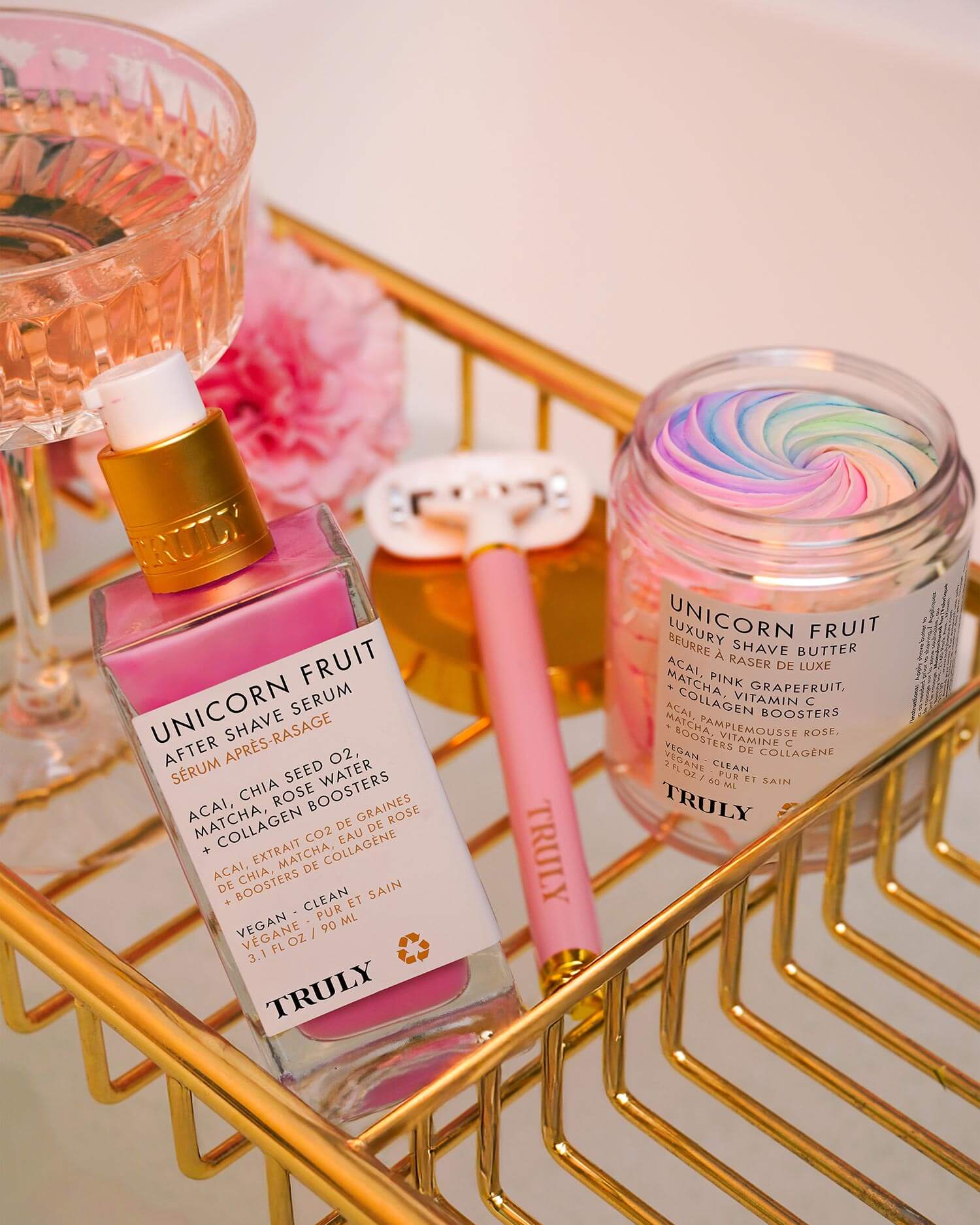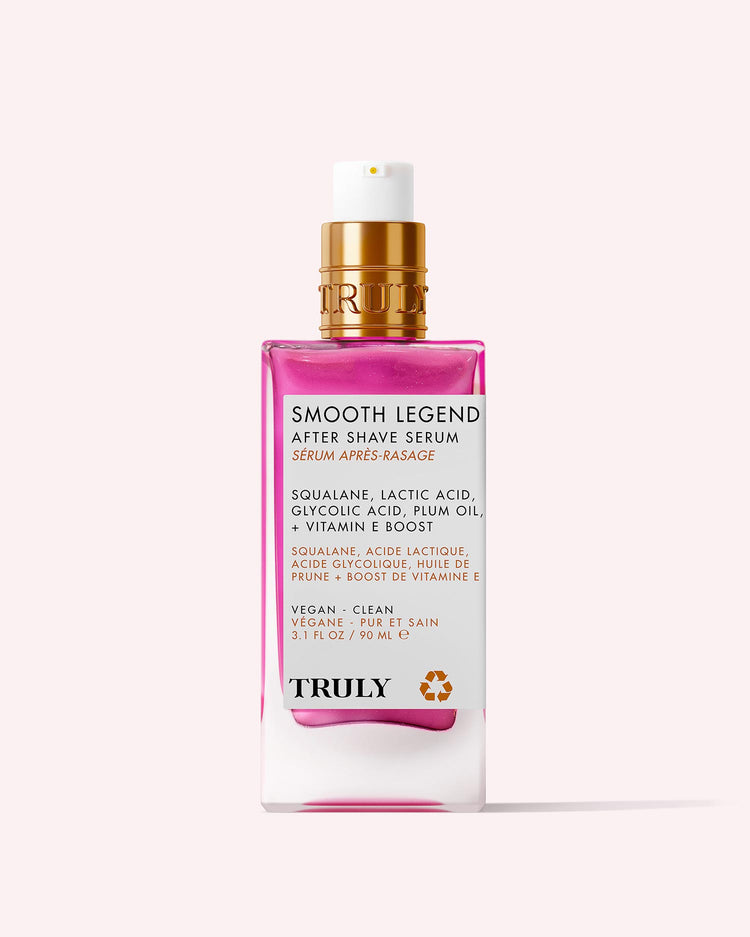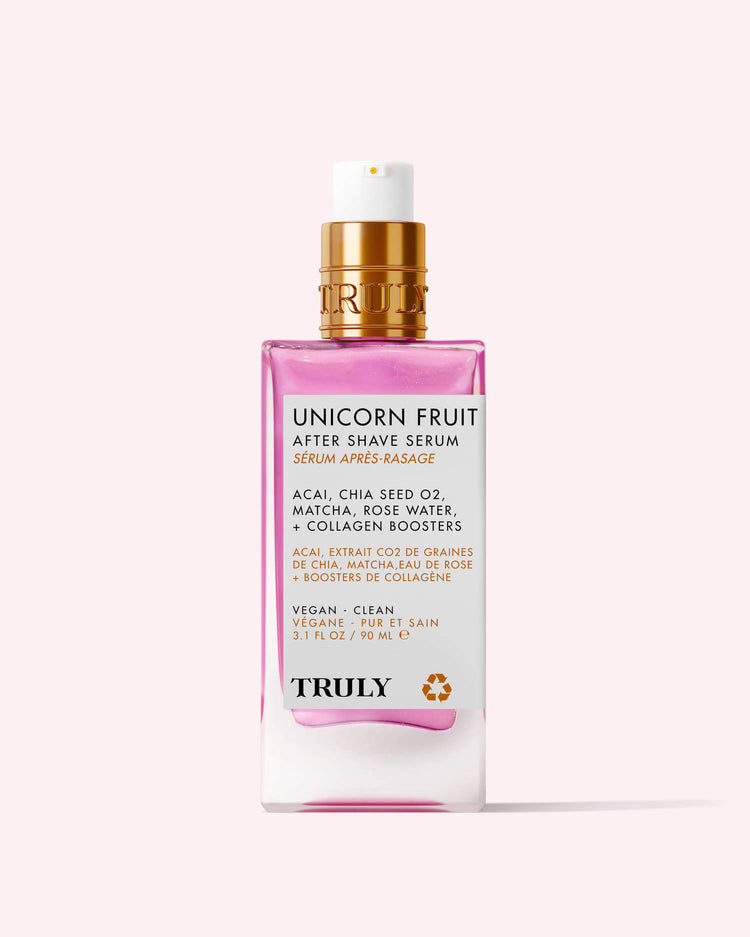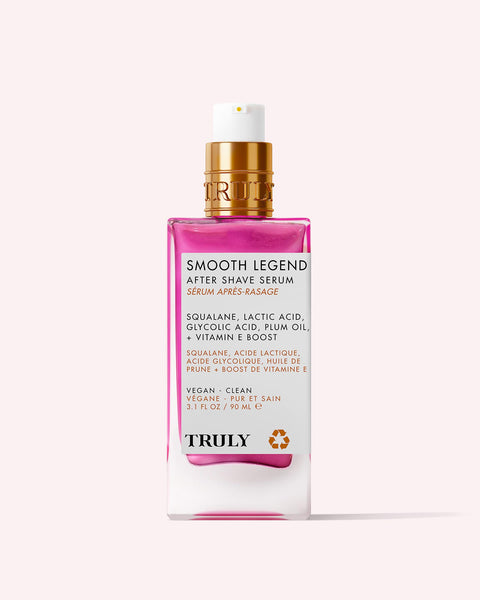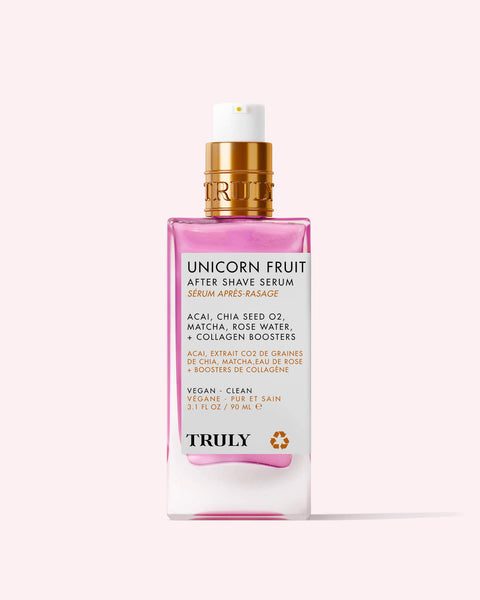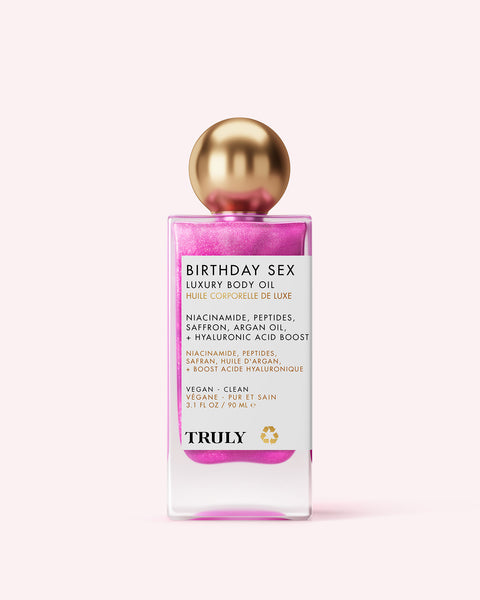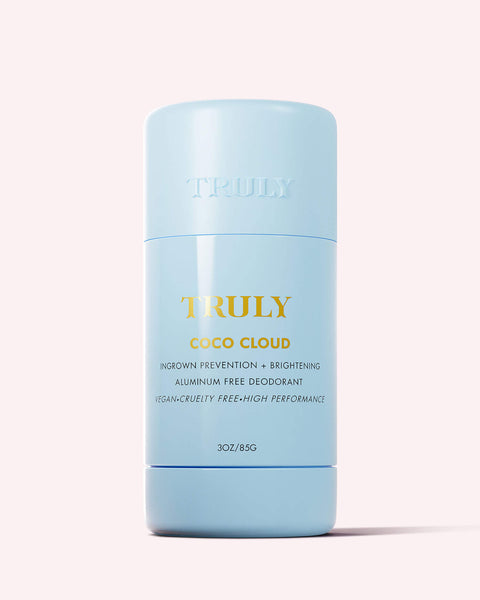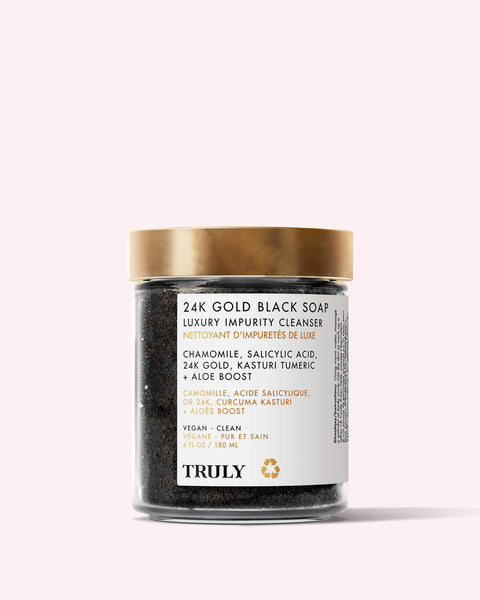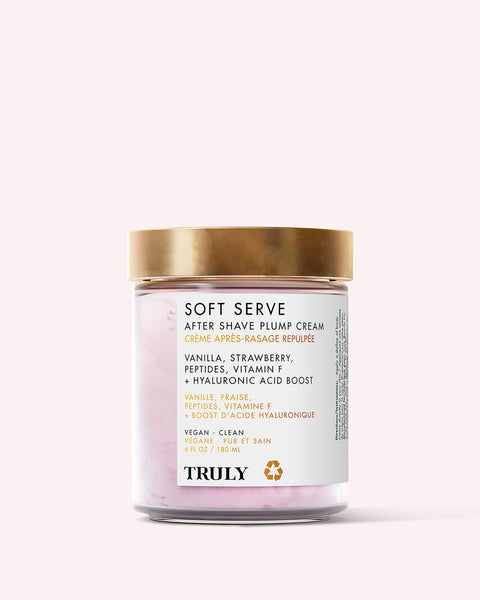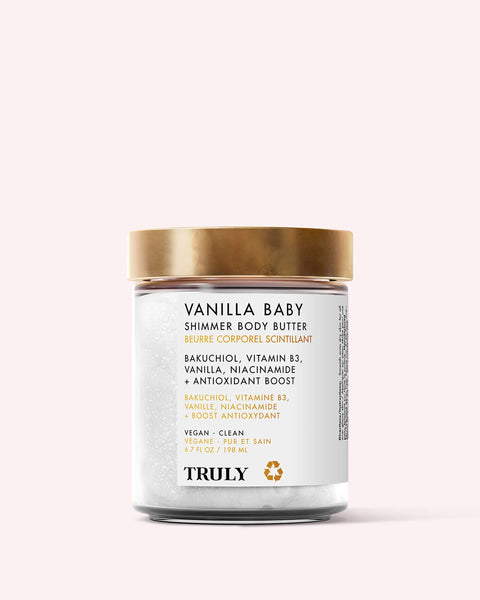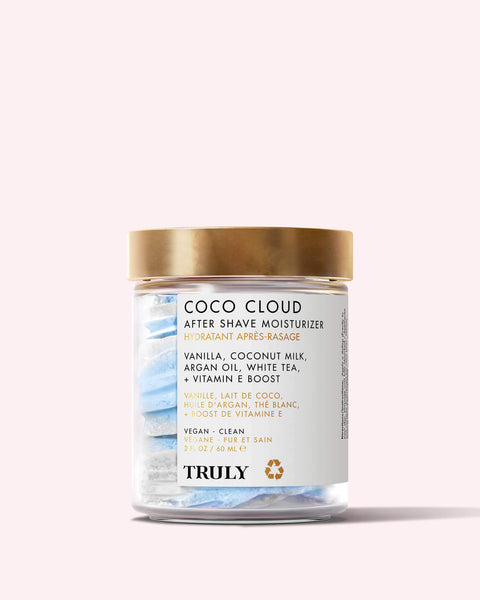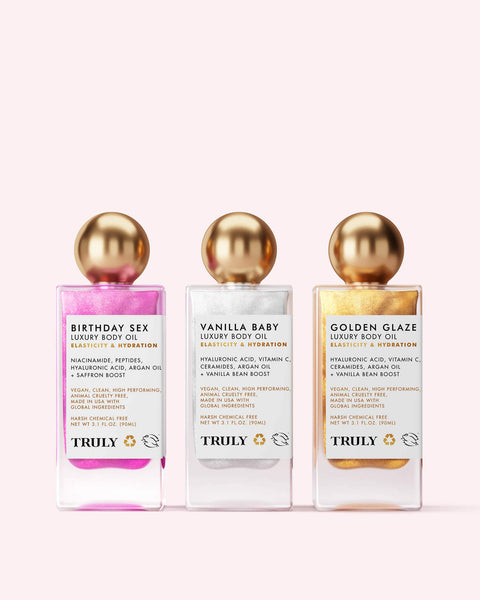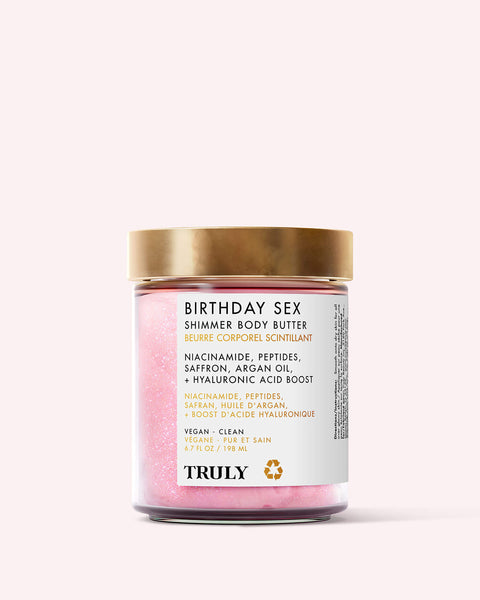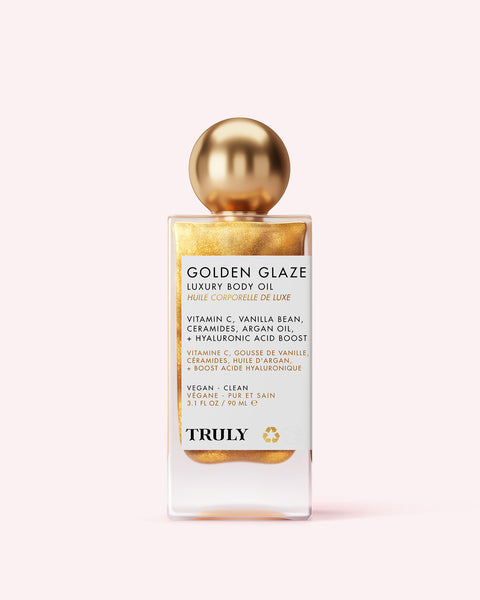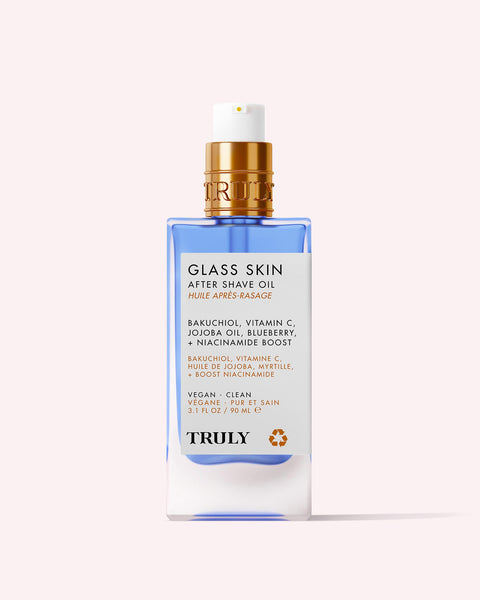How to Kick Textured Skin to the Curb

Are you on a quest to quell rough, dry skin?
Textured skin is extremely frustrating. It's one of those skin issues few people talk about because most of us don't even know it's a thing. Well, it is. Textured skin is happening, and it's about time we put an end to it.
Here, we put the spotlight on textured skin so you can finally understand what it is, what it means, and what you can do about it.
WHAT IS TEXTURED SKIN, EXACTLY?
Skin texture is essentially the condition of the skin's surface. In a dream world, skin is smooth, soft, and supple. Still, even if you have good skin texture, it doesn't mean you're immune to dullness, dryness, blemishes, or fine lines and wrinkles. We all are!
You'll know you have texture if your skin feels rough, dry, and bumpy. And if it looks that way too!
Foundation just doesn't seem to glide on well? Your complexion's always missing that glow? Sorry to say, but you probably have uneven skin texture.
WHAT CAUSES POOR SKIN TEXTURE?
"Uneven skin texture is commonly a result of excess dead skin cells that build up on the surface of the skin," explains cosmetic dermatologist Paul Jarrod Frank. "This can make areas of the skin feel rough or bumpy to the touch and can also give the skin a dull appearance."
A lack of a good skincare routine may be responsible for uneven skin texture. If you're not cleansing and exfoliating regularly, dead skin, oil, and impurities accumulate on the skin, causing it to appear dull and rough.
Sun damage and exposure to environmental aggressors like pollution are often the most common reasons for uneven texture. What's more, the thinness of skin makes it more likely for signs of aging, exacerbating symptoms even more.
Symptoms might often be confused with issues like uneven skin tone, but that focuses more on pigmentation.
HOW TO IMPROVE SKIN TEXTURE
Time to kick textured skin to the curb!
Use Vitamin C + Retinol
Without a doubt, retinol is one of the best ingredients out there for resurfacing textured skin. This vitamin A derivative is famous for its anti-aging abilities, but it can also make a huge difference in the quality of skin texture.
Proven to boost collagen production and speed cell turnover, retinol smooths and resurfaces skin, brightens skin tone, and banishes bumps.
Vitamin C is a potent antioxidant, which protects skin cells from UV-induced damage, promotes collagen production, and has the potential to thicken the dermis. Besides reducing hyperpigmentation, vitamin C improves the appearance of sun-damaged skin by strengthening skin's ability to recover.
Used together, retinol and vitamin C can transform your skin texture.
We recommend Truly's Vegan Collagen Bundle, which features four anti-aging skincare products (cleanser, moisturizer, mask, serum) all formulated with retinol and vitamin C.
Wear SPF
It might sound like a no-brainer, but daily sunscreen application can keep your skin looking younger, smoother, and softer for longer. That's because sunscreen protects the skin from UV rays which are known for messing with your texture.
Blotchy, damaged skin is often the result of too much sun exposure and it can definitely make your skin feel drier and rougher. Knock those concerns out with a broad-spectrum SPF.
Exfoliate
It’s important to buff away those dead skin cells once per week with a gentle exfoliant, which can be done either with a sugar-based scrub, chemical exfoliator, or everyday washcloth. Avoid using anything too harsh that might irritate or potentially damage the skin.
Dermatologists recommends exfoliating one to three times a week for best results. If you're going with a physical exfoliator, choose a scrub formulated with sugar, salt, or jojoba beads, as these won't cause microtears to the skin. Our fave is Matcha Face Scrub.
Chemical exfoliants rely on AHAs like lactic acid and glycolic acid to dissolve dead skin and oil. Our fave is CBD Jelly Toner.
It’s important not to over-do exfoliation since that can actually worsen skin texture. Start slowly incorporating it into your skincare routine to prevent breakouts or compromising your skin barrier.
Prioritize Hydration
Hydrating your skin with a nourishing cream, lotion, or oil can work wonders for textured skin. After all, healthy skin is hydrated skin.
"We know that skin hydration levels start to decline during the second half of the day, leading to dryness, flaking, and rough texture," says Joshua Zeichner, MD, a board-certified dermatologist and director of cosmetic and clinical research at Mount Sinai Hospital Department of Dermatology.
He adds, "Stick to moisturizers that contain calming ingredients like niacinamide to even tone and texture." Ingredients like hyaluronic acid, vitamin E, and coconut oil also work well!
We recommend our ultra-moisturizing Cream Skin Face Cream. It's formulated with hyaluronic acid and aloe to hydrate, sooth, and smooth skin. It's suitable for skin types including sensitive skin.
De-Stress Your Mind and Your Skin
Stress truly is one of the worst things for your skin. When you're stressed, it shows up on your skin. Maybe not straight away, but within a few hours or days. Even poor habits like not eating enough vitamins or not getting enough sleep can put stress on your body, causing it to freak out and react -- on your skin.
Improve the texture of your skin by prioritizing your wellness. Do your best to get eight hours of sleep, listen to some music, pop on a meditation app, or treat yourself to a few new beauty products. Your skin, your mental health, and your loved ones all benefit!
Don't let textured skin win. Follow our tips above to knock it out cold so you can enjoy a clear, smooth, and baby-soft complexion.
Tried everything on here and still nothing? Book an appointment with your derm for an in-office chemical peel or laser treatment. Some people may require more intense treatments to see visible improvements in their skin texture.
